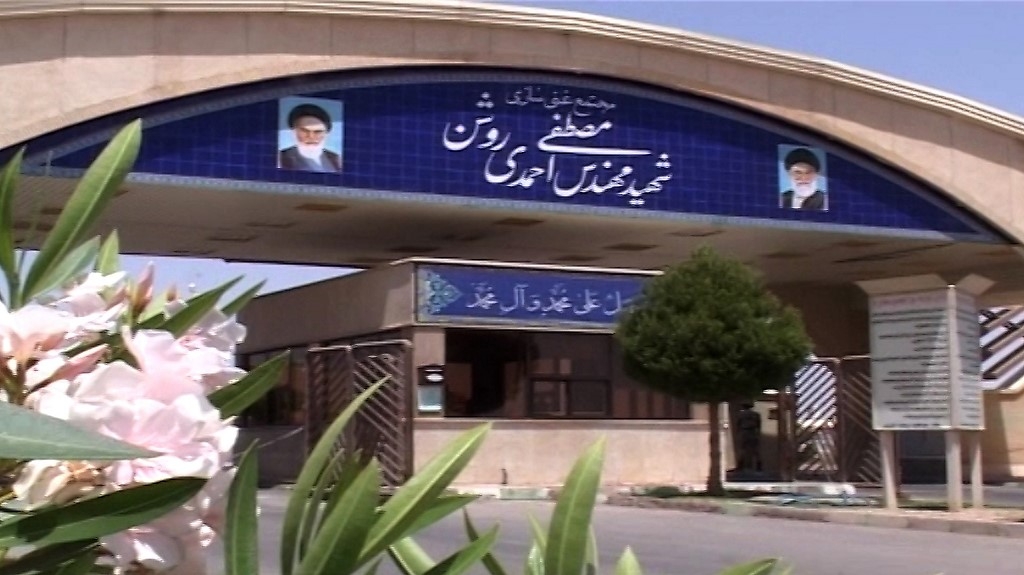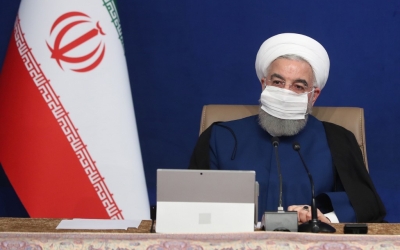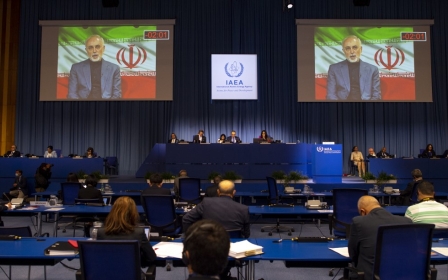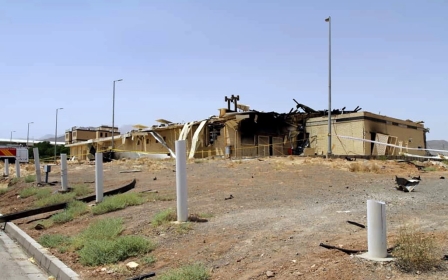Trump reportedly mulled options for attacking Iran last week but held off

US President Donald Trump last week asked his top advisors for options on attacking Iran’s main nuclear site but eventually decided to hold off, according to reports by the New York Times and Reuters.
In response to the reports, Iranian government spokesman Ali Rabiei said on Tuesday that any US attack against Iran would face a "crushing" response.
"I personally don't foresee that it's probable that they [the United States] would want to cause insecurity in the world and the region," Rabiei said.
Trump has so far refused to acknowledge the results of the 3 November presidential election, which he lost to Democratic rival Joe Biden. He is due to hand over the presidency on 20 January.
During an Oval Office meeting with senior national security advisors on Thursday, Trump asked them whether he had options to take action against the Islamic Republic’s main nuclear facility in Natanz, the New York Times reported.
The advisors, however, dissuaded Trump from the move, warning that such a strike would have the potential to escalate into a wider conflict in his last weeks in office.
Those attending the meeting reportedly included Vice President Mike Pence, Secretary of State Mike Pompeo, Christopher C Miller, the acting defence secretary; and General Mark A Milley, the chairman of the Joint Chiefs of Staff.
The meeting came one day after a UN report showed Iran had finished moving a first cascade of advanced centrifuges from an above-ground plant at its main uranium enrichment site in Natanz to an underground one, in a fresh breach of its 2015 nuclear deal with major powers.
The UN nuclear watchdog, the International Atomic Energy Agency (IAEA), warned on Wednesday that Iran's stockpile of enriched uranium had risen to more than 12 times the limit permitted.
According to the New York Times, any strike “would almost certainly be focused on Natanz”, where the IAEA carried out its latest inspection.
Iran's enriched uranium stockpile, which the nuclear accord restricts to under 300 kilograms, now sits at over 2,440 kilograms, according to a recent report by UN inspectors.
Experts say it is enough material to make at least two nuclear weapons, though Tehran has repeatedly denied it has any intention to do so.
Trump has spent all four years of his presidency engaging in an aggressive policy against Iran, withdrawing in 2018 from the Iran nuclear deal negotiated by his Democratic predecessor, Barack Obama, and imposing economic sanctions against a wide variety of Iranian targets.
Pompeo is due on Wednesday to visit Israel, which has long hinted at possible military action against its arch-enemy Iran.
"If I were the Iranians, I would not feel at ease" after the report, Israeli Energy Minister Yuval Steinitz said, adding that he was not aware of the Oval Office deliberations last Thursday.
"It is very important that the Iranians know that if, indeed, they suddenly dash toward high levels of enrichment, in the direction of nuclear weaponry, they are liable to encounter the military might of the United States - and also, perhaps, of other countries," Steinitz told Israel's Army Radio.
Watching Iraq
While a US missile attack is now off the table, Trump may still consider attacking Iranian targets and allies, including militias in Iraq, officials told the paper.
The report added that defence and national security officials have since been worried about any potential moves by the president against Iran or other US adversaries before the end of his term.
Meanwhile, Pompeo is monitoring the situation in Iraq for any possible aggression by Iran or its proxy militias against American targets, the New York Times said.
“Mr Pompeo already drew up plans to close the US Embassy in Baghdad over concerns of potential threats, although in recent days he appeared willing to leave that decision to the next administration,” the Times cited officials as saying.
The officials are especially concerned about retaliatory attacks marking the coming 3 January anniversary of the killing of Iran’s top military commander Major General Qassem Soleimani and an Iraqi leader of an Iran-backed militia, an operation that was ordered by Trump.
“Mr Pompeo, who has been the most strident proponent among Mr Trump’s advisers of hobbling Iran while the administration still can, has more recently made clear that the death of an American was a red line that could provoke a military response,” the New York Times added.
Middle East Eye delivers independent and unrivalled coverage and analysis of the Middle East, North Africa and beyond. To learn more about republishing this content and the associated fees, please fill out this form. More about MEE can be found here.




